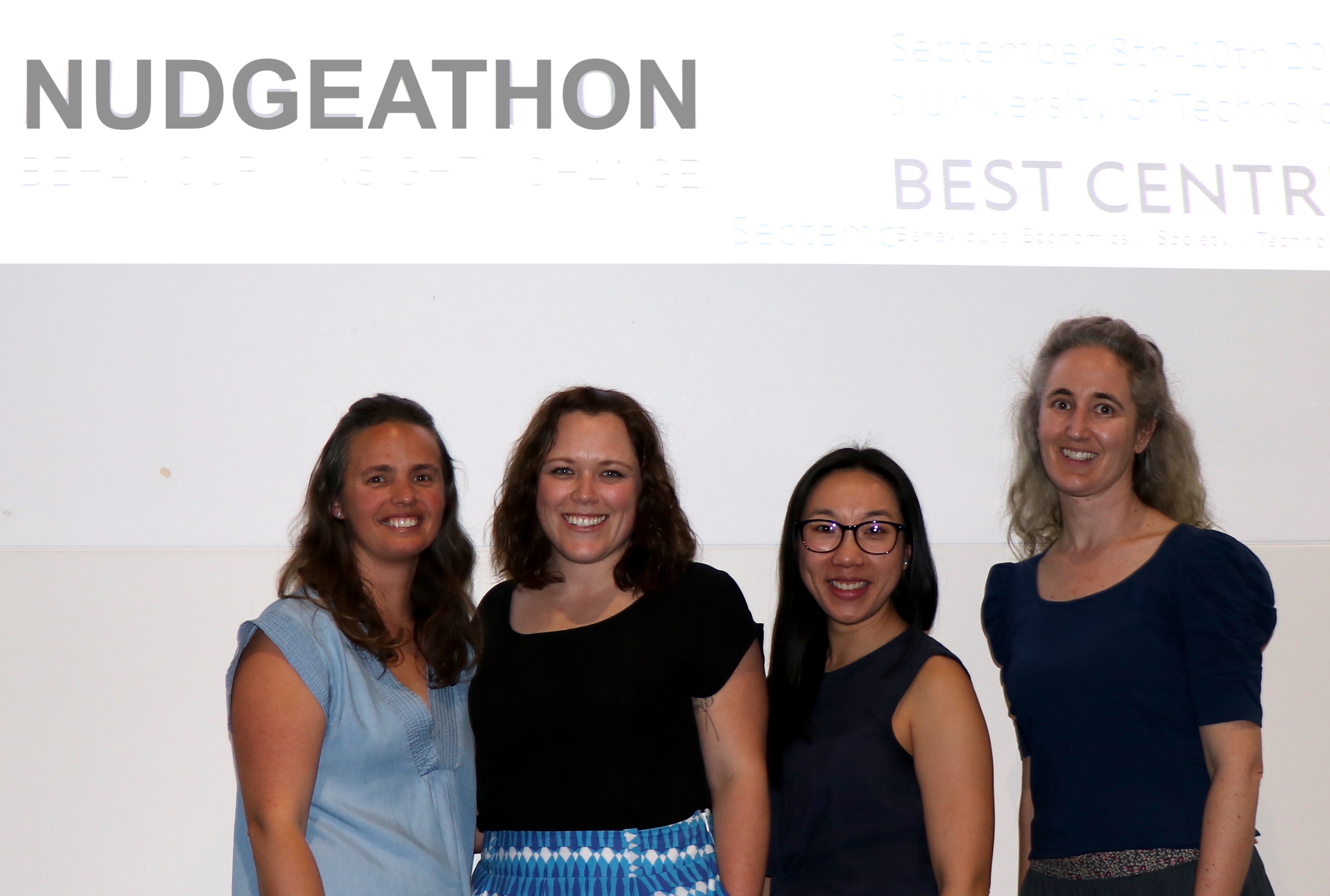


Giving justice a nudge
Four GRIP (Graduate Research Industry Partnership program) students – Wing Hsieh, Kathie Pawluk De-Toledo, Rebecca Stewart and Michaela Lang, recently spent two days in Brisbane, nudgeing for justice at Nudgeathon. We spoke to Wing to find out what that actually means…
What is a Nudgeathon?
It’s a behavioural science competition where teams from Australian and New Zealand universities compete to solve a public policy question.
What was the policy question?
This year we were trying to increase referral rates to restorative justice.
What’s restorative justice?
It’s an alternative to going through the court system. It focusses on mediation, so it allows victims and offenders to meet in person to work out their issues and have the time to process what’s happened between them.
Why is it important now?
When you think about the growing volumes of cases going through the courts, and the financial pressures that puts on the whole system, that’s one of the reasons, but there’s also a growing body of evidence on the efficacy of restorative justice. We need to make use of all channels to their full capacity.
How does a Nudgeathon work? Is it like Australian Idol?
Each team has to come up with an eight-minute presentation with slides, and you have to submit a two-page brief for the judges. So, we were sent our problem brief ahead of time and we did a bit of prep beforehand. We had guest speakers from the Queensland Department of Justice and Attorney-General tell us a bit more about restorative justice programs and allow us to ask questions of the key players in the system, like defence lawyers and frontline staff. We also had the Queensland Attorney General talk to us about the importance of restorative justice.
What idea did your team come up with?
Our team had a two-pronged approach; the first part was a short and simple online training module to tackle the lack of awareness among police officers about restorative justice as a potential avenue for resolution. The second part was changing the default in the existing QP9 form – the arrest form – which documents all the relevant information that the arresting officer needs to fill out.
So, your team targeted the arresting officer as the start of the chain?
The police officer making the arrest is the first person who has the opportunity to refer to restorative justice. We felt that focussing on the arresting officer has the most potential to increase referral rates, because it’s stopping the case from moving to the courts at the first possible point.
In changing the default on the form; asking them to justify why they’re not referring to restorative justice, we felt that was a good nudge to increase referral rates.
How did you go?
There were 17 teams and we came in the top five, which was pretty exciting. We got pipped by the University of Auckland, but we got to present to government stakeholders and it was a great opportunity.
What do you think of Nudgeathons?
I think it’s a great way to generate ideas. There are so many intractable issues and big policy questions to be addressed, to have 17 teams work on a problem and generate all those ideas, it’s very efficient.









